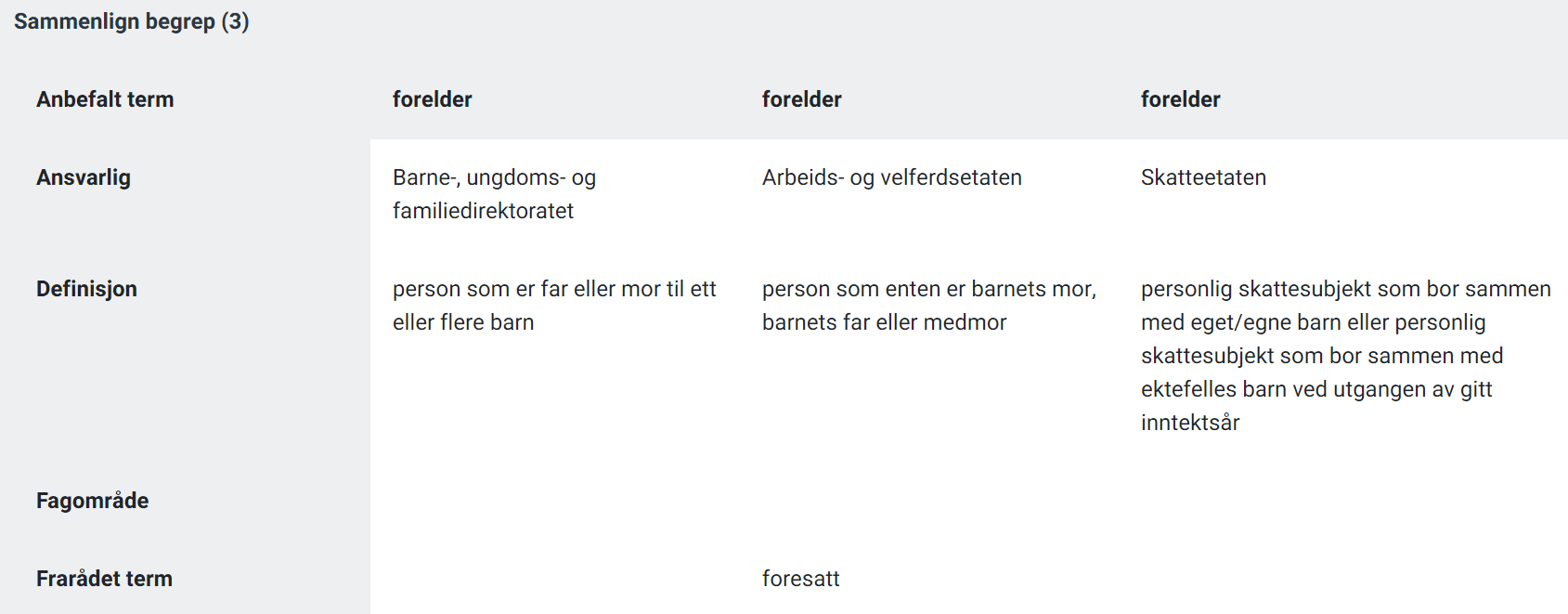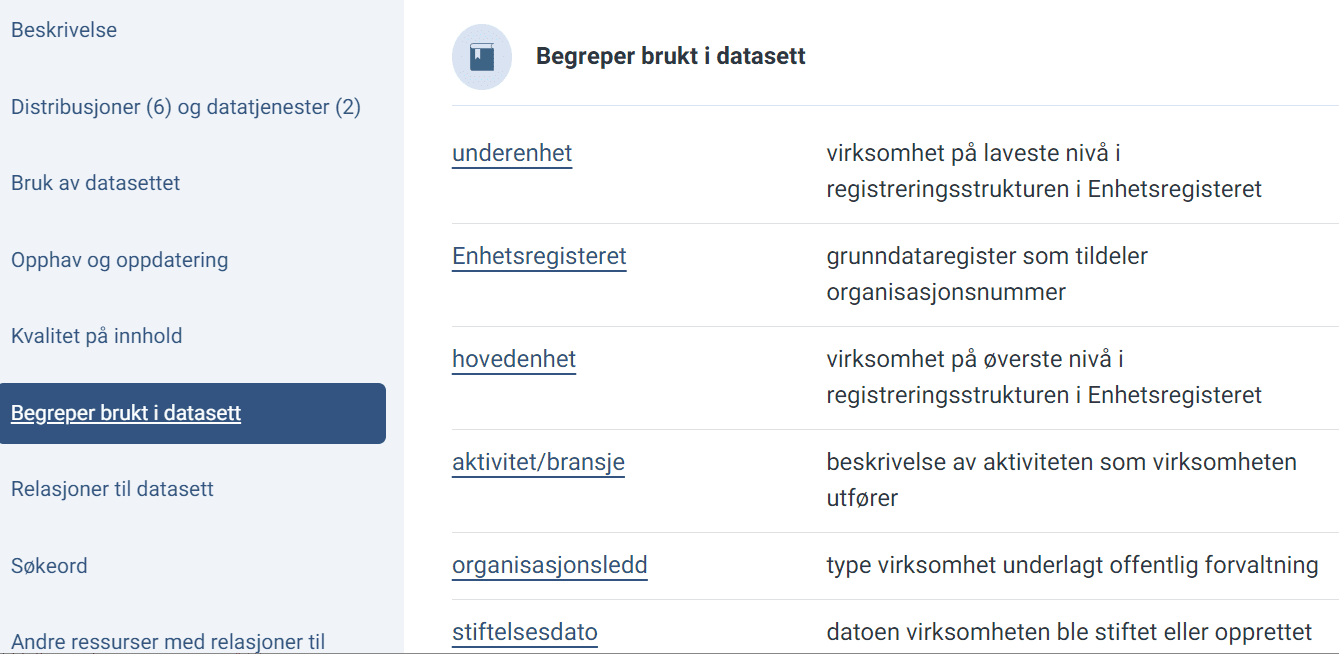The Concept Catalog
The purpose of the Concept Catalog is to make data more understandable. Similar concepts can be used in different ways in various contexts. Therefore, it is important to describe concepts to avoid misunderstandings and incorrect use of data. All concepts published in the Concept Catalog have an accompanying definition that explains what the concept means.
What information can I find in the Concept Catalog?
All concepts published in the Concept Catalog follow The governance standard for concept descriptions (SKOS-AP-NO-Begrep).
Below is what you can get information about:
- Definition
- Validity
- Allowed and discouraged term
- Subject and usage area
- Identifier
- Contact information
Compare concepts
It is possible to compare several concepts side by side. The tool makes it easier to find the concept that is best suited.

Relationship to other catalogs
The different data catalogs in the National Data Catalog can be used separately, but many of the catalogs have a logical correlation and can therefore be viewed together. Here is a description of the relationships the other catalogs have with the Concept Catalog.
Dataset Catalog
Datasets can relate to one or more concepts. When you have selected a specific dataset, you can choose "Concepts used in the dataset" from the menu. Here, you get a description of the concept by clicking on the underlined text (as shown in the image below).

Information Model Catalog
Information models can refer to concepts. You can read more about information models on the page about the framework for information management (digdir.no). In the image below, you can see that concepts are defined and have a relationship to the information model.
